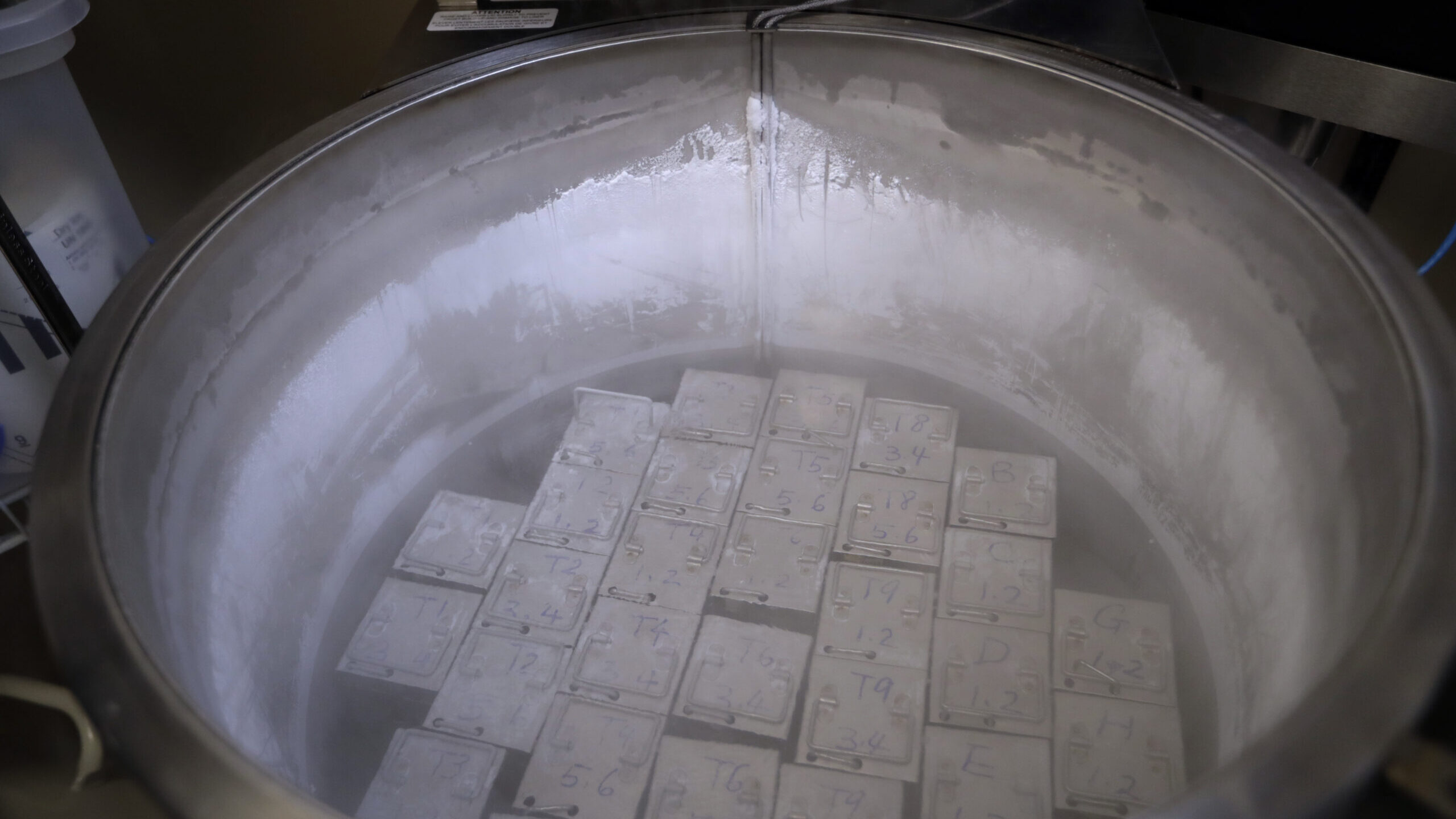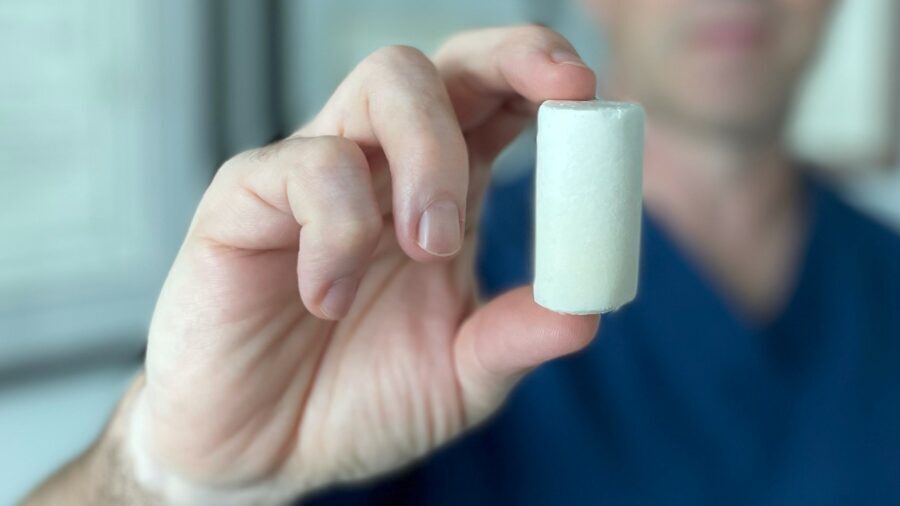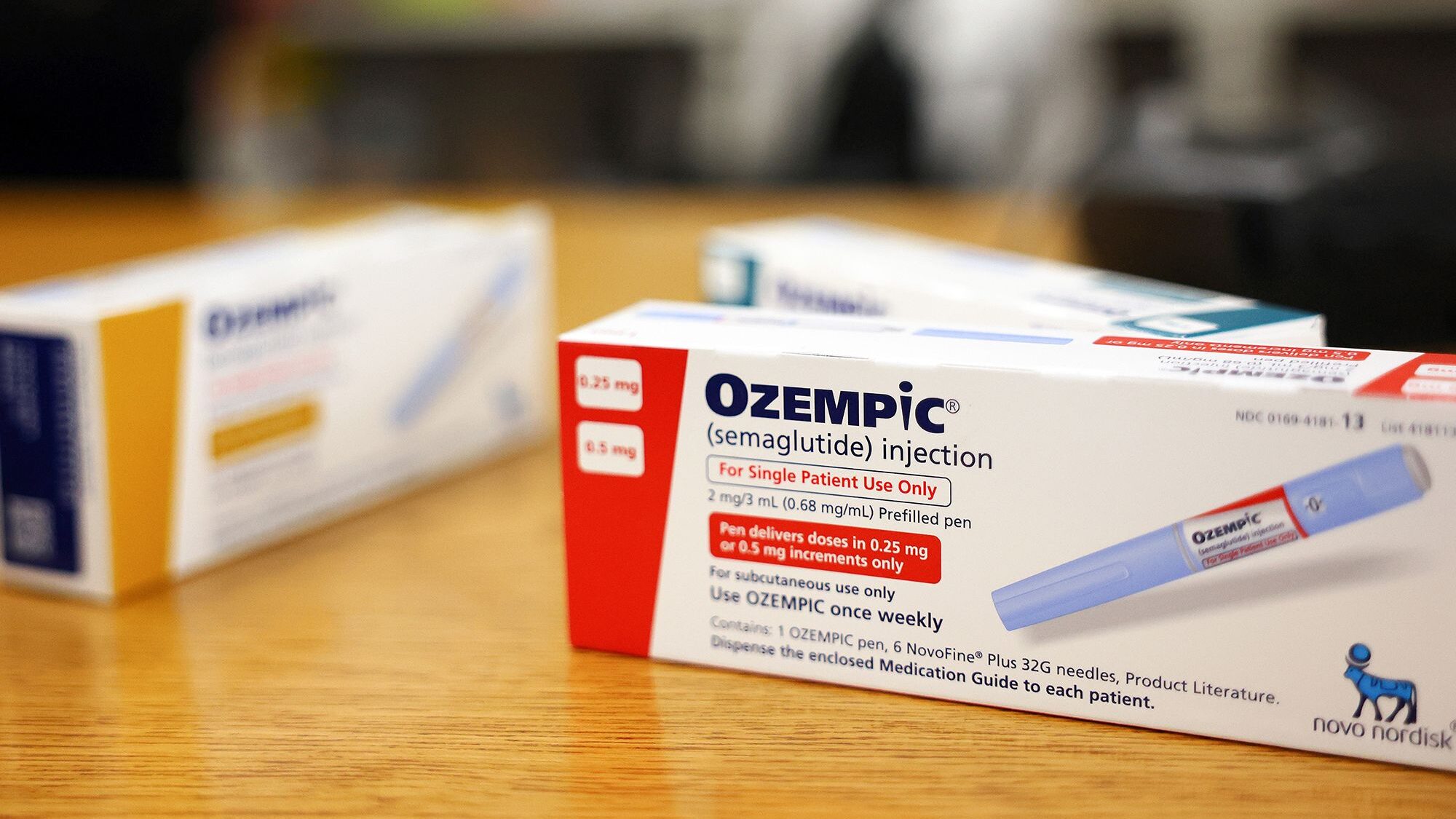The future of IVF in Utah following the Alabama Supreme Court embryo ruling
Feb 22, 2024, 3:00 PM | Updated: Feb 23, 2024, 10:26 am

FILE - Containers holding frozen embryos and sperm are stored in liquid nitrogen at a fertility clinic in Fort Myers, Fla. The Alabama Supreme Court has ruled that frozen embryos can be considered children under state law (Lynne Sladky, Associated Press)
(Lynne Sladky, Associated Press)
SALT LAKE CITY — Following the Alabama Supreme Court’s ruling that frozen embryos can be considered children under state law, one of the state’s largest health centers has paused in vitro fertilization.
So where does that leave Utah?
The background of the Alabama case
A group of parents in Alabama brought the case forward after someone removed their cryogenically frozen embryos from a freezer.
They allege that a patient at the hospital was able to walk into the center’s fertility clinic and then remove the embryos from the cryogenic nursery.
The freezing temperatures from the stored embryos froze the person’s hands and they dropped the embryos.
The parents originally brought two lawsuits against the center. One, under Alabama’s Wrongful Death of a Minor Act, the other under common-law claims of negligence asking for damages.
The cases were dismissed in the trial court and then appealed.
Then the case went to the Alabama Supreme Court, which ruled that “the Wrongful Death of a Minor Act applies to all unborn children, regardless of their location.”
That includes unborn babies that are outside the uterus.
A Utah lawyer reacts
Leslie Francis is a professor of law and philosophy at the University of Utah. She’s also an adjunct professor in Family and Preventive Medicine and Internal Medicine – in the Division of Medical Ethics.
She said when she first heard about the case she thought it was disastrous.
But when she read it and listened to the oral arguments, she said she saw that this “is a way to damage control, which is to think of the case as ‘What can you do for parents who lose a valued embryo when it looks like the only statute that would give them a recovery of damages is that Wrongful Death of a Minor Statute in the state of Alabama?’”
Utah has a wrongful death statute for a minor. It’s been used in cases like the pregnant Salt Lake City mother who was killed in May 2022.
In that case, Jack Keith Archibald pleaded guilty to two counts of automobile homicide after driving under the influence. One count was for the woman’s death and the other was for her unborn child.
A Utah Supreme Court ruling in 2011 set the precedent for an unborn child to qualify as a minor.
But Francis said there’s no way to know if Utah would interpret its wrongful death statute the same way Alabama did until a case came up here.
The future of IVF in Utah
Francis said one thing she would consider is that Utah enacted its wrongful death statute for unborn children somewhat recently. She said in 2011 IVF was widely practiced in Utah.
“Certainly, I would make the argument that Utah adopted that statute from the legislature with the knowledge that people in the state of Utah valued IVF and would not have intended to preclude what is a very important way for couples in Utah to have the babies they want.”
Francis said if she worked for an IVF program in Utah, she would want to get clarification from the legislature.
Dr. Erica Johnstone is a reproductive endocrinologist with University of Utah Health. She said discussions about the Alabama ruling are underway in the IVF community and broader fertility world.
She said as far as she knows, Utah’s IVF programs aren’t doing anything differently.
“This is specific to the state of Alabama,” Dr. Johnstone said. “We here in Utah today are not changing what we’re doing.”
She said this ruling leaves a lot “up in the air” about the future of IVF.
“Certainly one question is ‘must those embryos be frozen forever?’” she said. “But I think it gets to an even bigger question of ‘can you still freeze an embryo if an embryo is considered a human life?’”
She said the ruling is scary and hard for her patients because “a frozen embryo just isn’t the same thing as a baby and I think it’s hard to know how a fertility clinic could go on helping patients with this ruling.”













